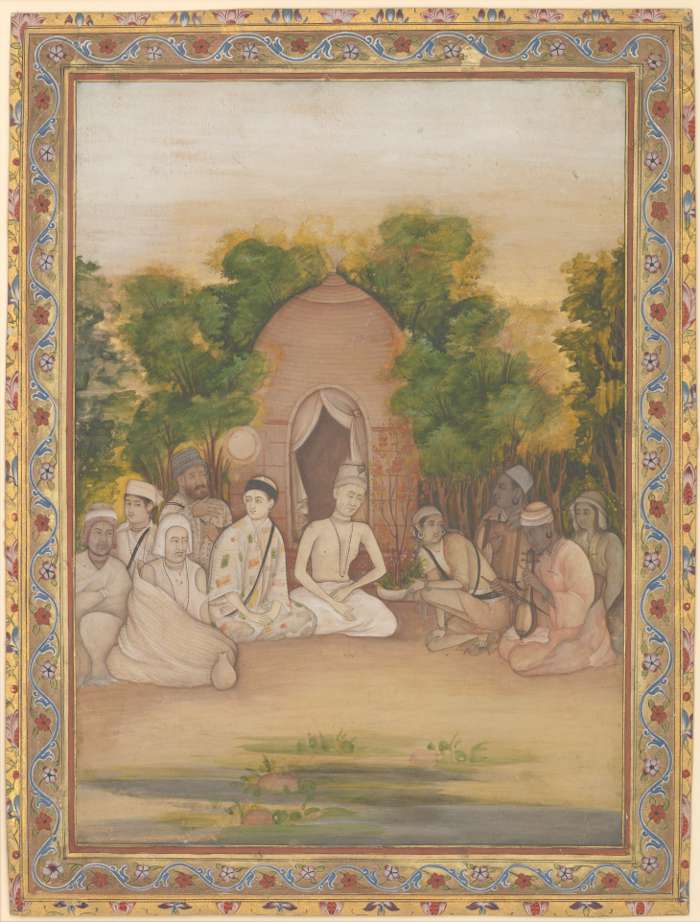FWP:
SETS == MUSHAIRAH;
WORDPLAY
RELIGIONS: {60,2}
The word maqām is conveniently multivalent (see the definition above): it can refer to a house, a camp, a situation, and as the commentators especially emphasize, a state of being-- a stage on the great mystical path that the Sufi orders so systematically delineate. This certainly feels like a verse addressed to a divine rather than a human beloved; for more such, see {20,10}.
Because the subject is omitted from the second line, it could apply to a 'we' (all the seekers, including the speaker), or to a 'they' (as the speaker, from some vantage point, compassionately watches the weak stragglers).
But this is also a verse with conspicuous wordplay; and for once Nazm at least, and some of the other commentators (probably following him) agree. The relationship between do chār , 'two [or] four', and nā-chār (see the definition above) has an aptness that goes beyond the phonetic echo. 'Three or four' people (as we would say in English) form a very small group to peel off from a caravan on a long journey, and it's all too easy to imagine them as 'helpless', or as 'helplessly' exhausted and 'without recourse'.
Compare {32,1}, which plays more centrally on do chār honā .
The fact that the first line is opaque until the second is heard; and that the punch-word, nā-chār , is withheld until the last possible moment; and that then the verse suddenly explodes into full meaning-- these qualities make this a fine mushairah verse too.
For a similar view of the role of religions, compare the striking {93,3x}.

Nazm:
By maqām is meant stages in the mystical path [maqāmāt-e salūk-o-maʿrifat]. In this verse there is a ẓilʿa of do chār and nā-chār . (109)
== Nazm page 109